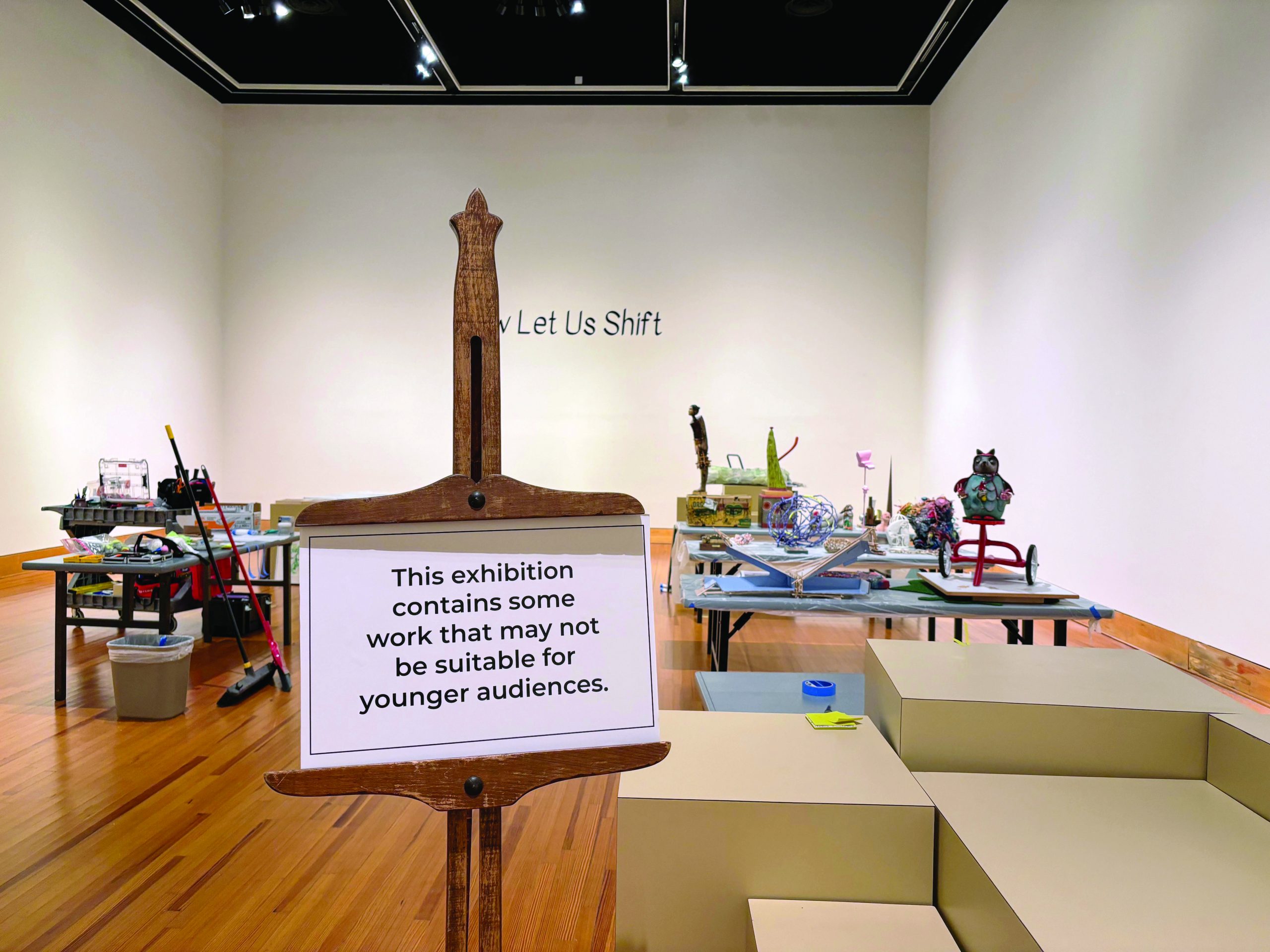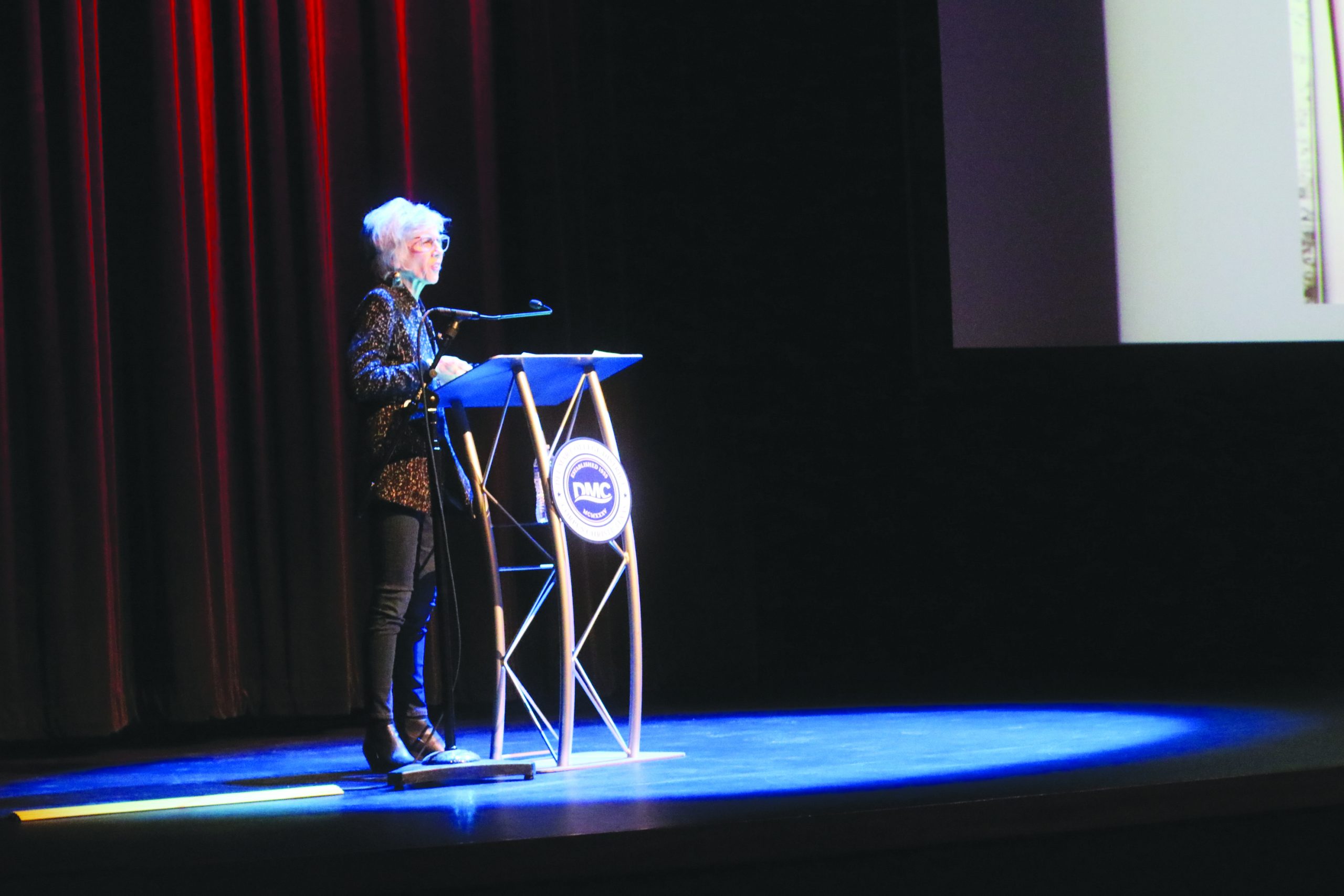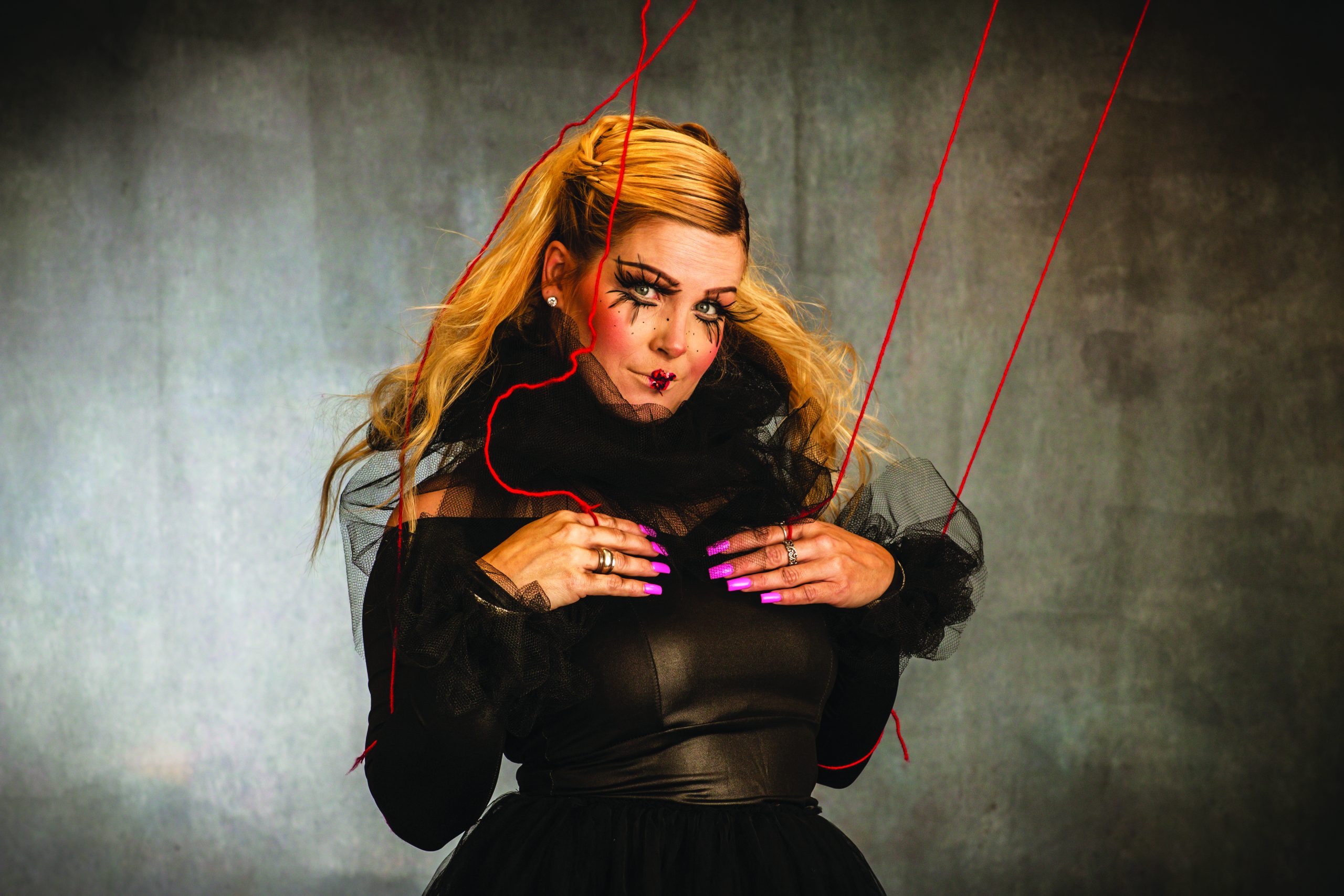Katherine Linotas-Warren, professor of art at Cameron University in Lawton, Oklahoma, spoke to students about her artwork, her process of creating art and what she was looking for when she judged submissions from students for the National Drawing and Small Sculpture Show on Feb. 20.
During the lecture, held in Richardson Performance Hall, Warren explained how she teaches drawing, watercolor and printmaking as a professor.
“It is such an honor to be here,” Warren said. “When I was at Texas Tech as a graduate student, I entered one of my first competitive shows and it was here at Del Mar. This whole area is so beautiful.”
Warren said much of her artwork was in black and white for a while because of her love of photography.
“I really love that high contrast, noir type of feeling and mood,” Warren said. “I think sometimes color gets in the way, and we have to be careful how we use color. Sometimes instead of it being used in an emotional way, I feel it’s being used to cover up something.”
With nearly 800 submissions to the art competition, it took Warren about three weeks to go through each entry.
“When I started, I looked at everything and I got excited,” she said. “I found myself picking three or four pieces from one artist and I realized that was too many pieces. I was going back and forth.”
Warren said that when judging, she looked for strong craftsmanship and originality.
“I didn’t want something that didn’t really speak to me; I wanted something original,” Warren said. “I look at titles as well, the type of medium they use and if they’re experimental. In some cases, I try to really get into their mode of thinking and what would I do if I had this concept.”
Nicole McCune, a studio art major, said she enjoyed hearing Warren’s openness to mixed media and what she had done throughout her career.
“Her hardships, her inspirations, what she likes and doesn’t like and pretty much just her creative process was so interesting,” McCune said.
Jesse Lopez, a studio art major, said he felt inspired by Warren when he found out she too suffers from obsessive compulsive disorder.
“I personally struggle with the same thing and it’s hard for me to finish work that I have,” Lopez said. “It’s cool to know that someone was able to do it and further their work as they got older.”
Warren said the experience of being a juror was great, but difficult.
“A juror always brings something different, and that’s because we all have different experiences,” Warren said. “That’s the beauty of being able to be different and being able to select pieces. We all don’t want to be the same, we want to be different. Change is good for you.”





